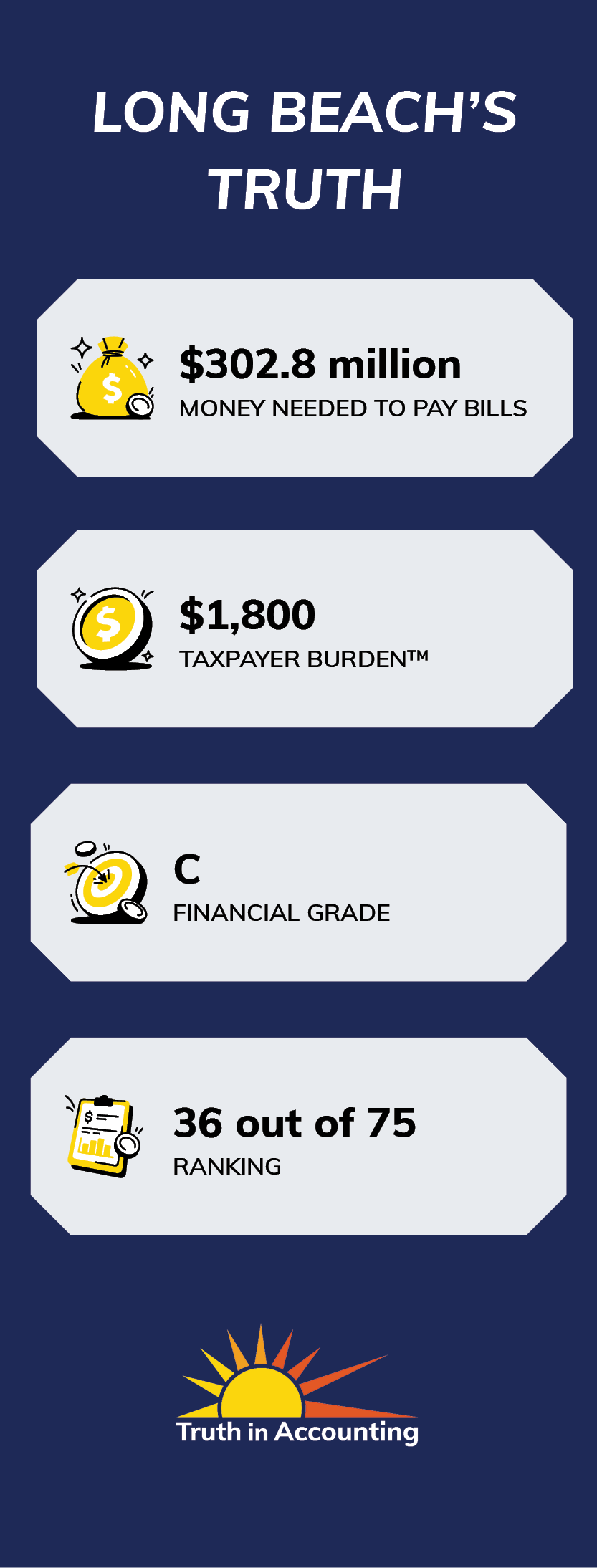Long Beach, CA
,
|
TIA Data 2023 Financial State of Long Beach (Released 02/27/2024) Use Create Your Own City Chart to see additional financial, demographic and economic data for this and other cities
Prior Years' TIA Data2022 Financial State of Long Beach 2021 Financial State of Long Beach 2020 Financial State of Long Beach 2019 Financial State of Long Beach 2018 Financial State of Long Beach 2017 Financial State of Long Beach 2016 Financial State of Long Beach 2015 Financial State of Long Beach
Other ResourcesLong Beach Annual Comprehensive Financial Reports Publishing Entity: Department of Financial Management |


